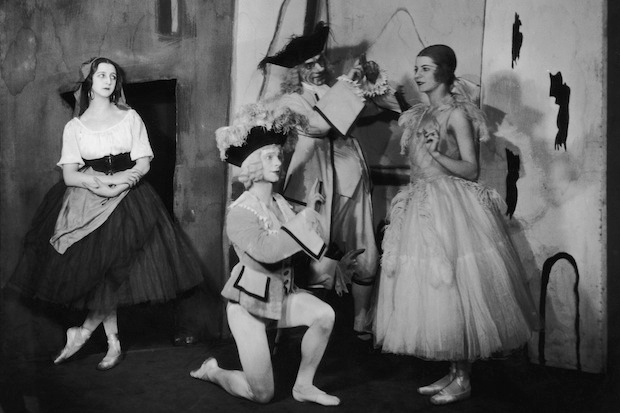While the airwaves resonate with celebrations of Britten’s birth, I cannot help thinking that what was happening in Paris at that very moment was light-years away, not only from Lowestoft, but also from London. The cultural distance between the two metropolises can never have been greater than it was in 1913, and one can only imagine what Lowestoft was like then. The Britten family home, where Benjamin was born, is still standing, but it gives few clues to the life the family lived — inevitably restricted not only by location but also by lack of money. His father had once had the dream of becoming a gentleman farmer, but in the end had to settle for being a dentist.
Cut to Paris, where the most glamorous if not notorious episode in the history of classical music was unfolding. What Paris was like in the months before the first world war is the stuff of legend. The thought that all those carefree people, who seem so glamorous now, somehow deserved the debunking that was just around the corner, has fuelled the idea that since the debunking was so extreme so must the hedonism that preceded it have been. Some of the mood of the moment can be recaptured in the extravagant story of the Ballets Russes. Uniting several art forms in a Gesamtkunstwerk even Wagner would have been proud of, Diaghilev’s vision encompassed dance, design, poetry and music in a series of masterpieces, some of which have never faded. He had an eye for talent in every department, and never more than in music, commissioning Debussy, Milhaud, Poulenc, Prokofiev, Ravel, Satie, Respighi, Stravinsky and Richard Strauss. He had no serious rivals.
It was the Stravinsky ballets, and especially The Rite of Spring, which caused scandal. The first performance took place on 29 May 1913, exciting a near-riot in the audience. The show went on, even though the orchestra was pelted with anything that came to hand, and despite the fact that Nijinsky, who was calling out the bar numbers, could not be heard. Such a reaction these days in London or Paris to a public event in a museum of culture like a symphony hall would be effectively impossible. What is not so impossible is the kind of mania that Nijinsky set off in people’s minds. In Rimsky-Korsakov’s Schéhérazade he had been cast as a sex slave. A description of how he was expected to dance included this: ‘His bare torso twisted in the fervour and excitement of his new-found freedom, like a cobra about to strike.’ Elegant ladies went wild: ‘peacock tail’ colours, chiffons and turbans became the imperatives of the 1910 season. Things have moved on a bit since then. Now it is women who dance almost nude, and make the headlines for becoming ever more daring and risqué. Will Miley Cyrus be remembered for influencing a fashion — how to twerk maybe? Will Miley Cyrus be remembered?
In fact, Diaghilev’s productions continued all the way through the first world war with Stravinsky’s Pulcinella (1920) and Les Noces (1923) still to come; and Constant Lambert’s unknown Romeo and Juliet, with artwork by Max Ernst and Joan Miró also pending, in 1926. The wonders almost never ceased — until Diaghilev died of diabetes in 1929. The next centenary event from this roll-call of anniversaries will be Richard Strauss’s Josephslegende, to a libretto by Hofmannsthal, which premièred at the Paris Opéra on 14 May 1914.
All this, and much more, is recounted in one of the two books about music that I recommend you read this Christmas. Lucy Moore’s Nijinsky tells the story in just the businesslike way such an overwrought story needs to be told. The other book is also given the title of its hero — Byrd, by Kerry McCarthy.
I enjoyed this book partly because the evidence McCarthy has so carefully pieced together points to the possibility that the renaissance master William Byrd was not a very pleasant person. Of course from a distance of 400 years, it is hard to be certain, but there are reports of him threatening violence against a neighbour who ended up in court against him; and that the ‘vile and bitter words’ of which he was so regularly capable came to roost in his will, where he says he will disown his son, Thomas, if he should ‘seek by law or other ways to disturb or trouble my executors’.
This is rare stuff against a national icon. And I loved the bit about how Byrd lived in ‘a peculiar mixture of Counter-Reformation zeal and cosmopolitan Renaissance humanism. A visitor to Oxford could attend an open scholarly debate and see dissenters burned at the stake, sometimes on the same day.’ Could they, indeed. One wonders which day that was. But it is vivid reportage.






Comments